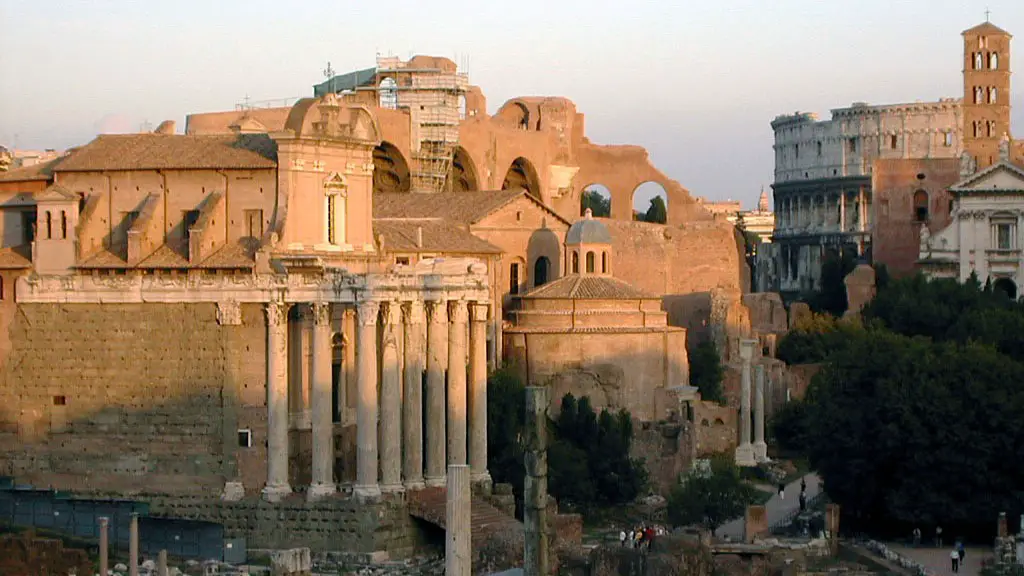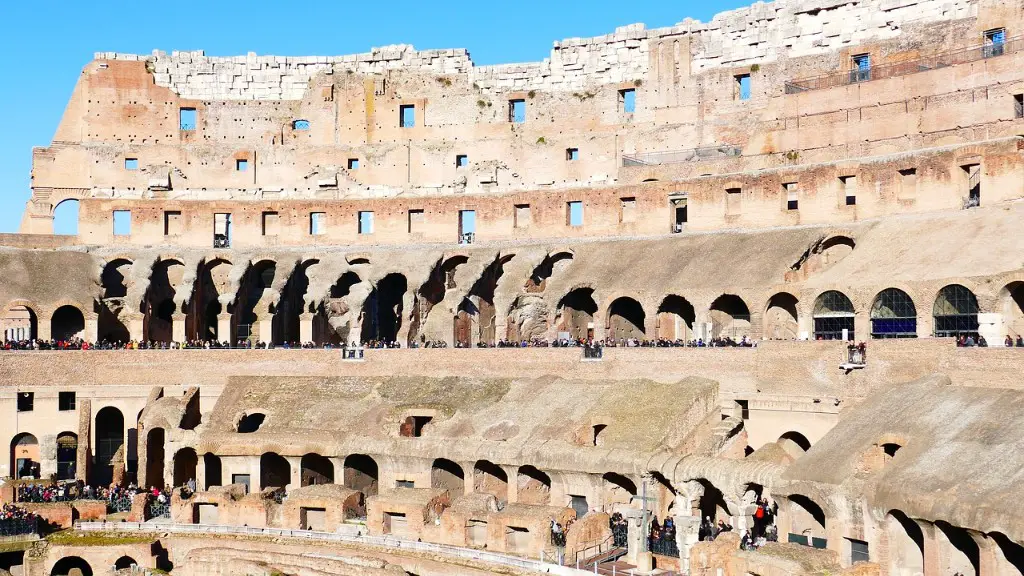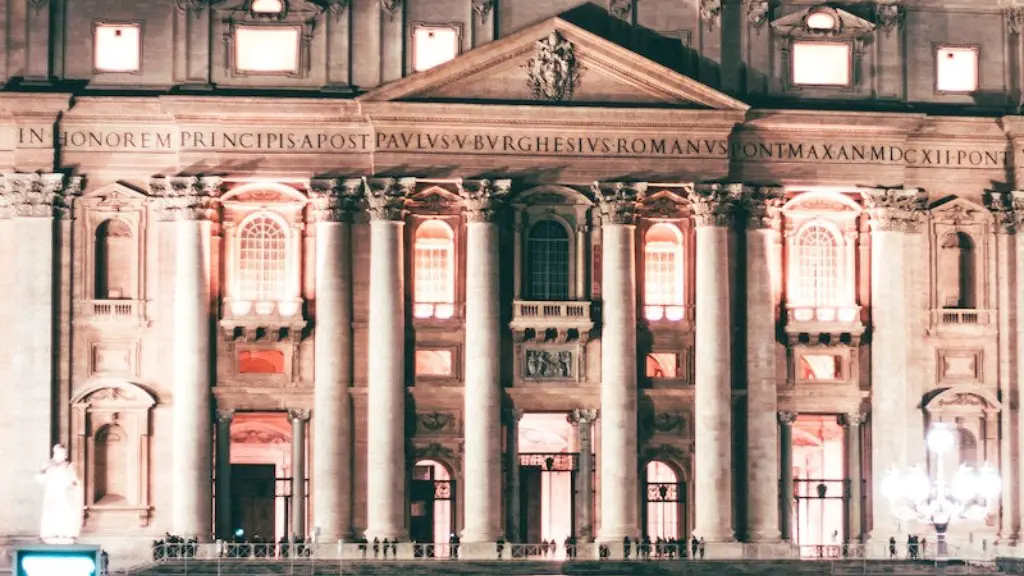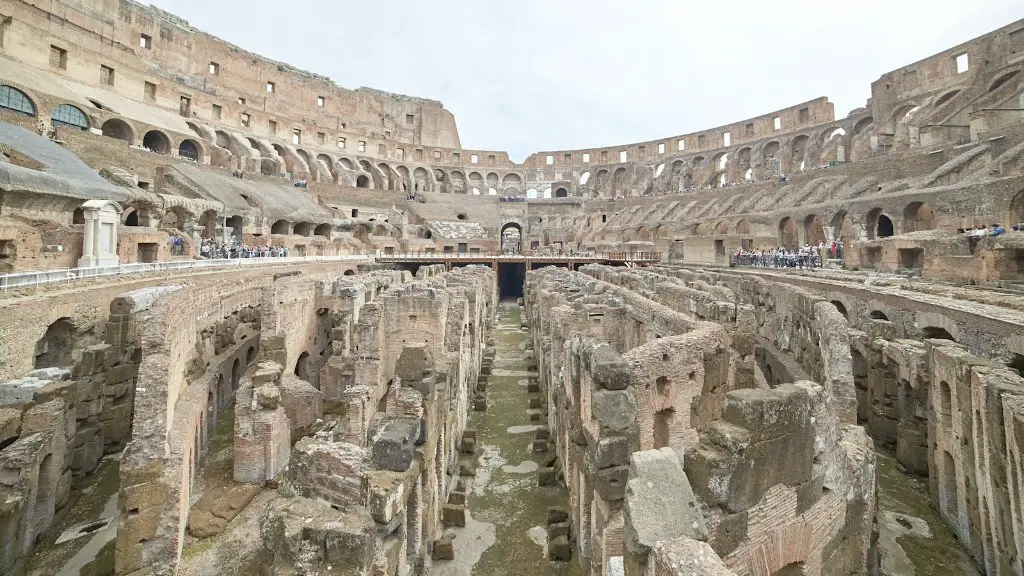In ancient Rome, wine was more than just an alcoholic beverage – it was an integral part of Roman life and an essential social and religious experience. Wine was so important to the daily life of the ancient Romans that even the poorest would consume it on a regular basis. Ancient Rome was a wine-drinking society, with a rich history and culture surrounding the production, enjoyment and even religious use of wine. So why did the ancient Romans drink wine?
Economic Factors
One of the main reasons why the ancient Romans drank wine was economic. In the ancient world, wine was much cheaper than many other food staples such as grain or meat, and so it was consumed by much of the population on a daily basis. In addition to this, wine was a way for the ancient Romans to make a profit. Wine was a major export for the Roman Empire, with it being sold to the various provinces of the empire. Wine even made up part of taxes and payments for the Roman army.
Aesthetics of Wine
In addition to the economic benefits of consuming wine, the ancient Romans also enjoyed the taste and flavor of the drink. Ancient Romans enjoyed wine for its taste, smell, and appearance, even mixing different varieties of the beverage together to create new and exciting flavors. The ancient Roman author Pliny the Elder wrote at length about the many different vineyards and varieties of wine that could be found throughout the Roman Empire. The Romans saw wine as an art, and some of them even established vineyards as an expression of their art.
Religious Symbolism
The ancient Romans also used wine in religious rituals and ceremonies. Wine was seen as a divine beverage, and was used as an offering to various gods by the ancient Romans. Wine was even used in some religious festivals and ceremonies, such as the consecration of a temple or the initiation of a new magistrate. For the Romans, wine was a symbol of rite, purity and regeneration and was associated with the cult activities dedicated to their gods.
A Social Connector
Finally, wine was also a popular social drink in ancient Rome. It was a way to bring people together and was used to mark celebrations and ceremonies. The act of consuming wine together was seen as a bond between people. Even the most powerful members of society would drink wine with their peers and would do so publicly, as an act of showing their wealth and stature. Wine was also used in social gatherings and as an accompaniment for group meals, as a way of forging closer connections between friends and strangers.
Cultivation and Distribution of Wine
In order to understand the importance of wine in the lives of the ancient Romans, it is important to consider the way in which this beverage was cultivated and distributed in the Roman Empire. Vineyards were established across many provinces, providing a regular supply of the beverage to the Roman people. The government also played a role in the cultivation and distribution of wine, as it set taxes and tariffs on its import and export.
Culinary Uses of Wine
In addition to being a popular drink in its own right, wine also played an important role in Roman cuisine. Many recipes from the ancient world included the use of wine, whether it be in a marinade or as an accompaniment to a dish. Wine was also used to preserve food, as the acidic nature of the beverage helped to slow down the spoiling of many dishes. This gave the ancient Romans access to a wider range of foods and made them more open to experimenting with different flavors and ingredients.
The Impact of Roman Wine
Today, the production and consumption of wine still carries many of its traditions from the days of ancient Rome. It still plays an important role in different cultures around the world, and modern wine producers continue to draw upon the knowledge and methods of their Roman counterparts. So, while the ancient Romans may no longer be producing wine, their influence on its production and consumption can still be felt in many respects.
The Decline of Roman Wine
The production of wine in the Roman Empire started to decline during the 4th century, as the Empire began to fall apart. The governmental structures that supported vineyards and the production of wine became less reliable as the territories of Rome became more divided. Both political and religious reasons were behind the decline of wine in Rome, as Christianity and its beliefs which opposed the consumption of wine began to emerge and spread throughout the Empire.
Viticulture in Rome Today
Despite the decline of the Roman wine industry, some of today’s vineyards can still trace their roots back to this ancient society. Rome itself has a long and rich history of wine production, with its vineyards being amongst some of the oldest in the world. Today, the Italian wine industry is a testament to the influence of ancient Rome, as the methods and techniques developed during this period continue to shape and define the way wine is produced and enjoyed.
Unique Natural and Social Environment
The unique natural and social environment of ancient Rome gave rise to the large-scale production and consumption of wine. The soils, mild climate and access to water all contributed to the success of Roman vineyards and wineries. Likewise, the acceptance of wine as an integral part of Roman life and culture, as well as its wide use in religious ceremonies, also helped to ensure the success of the Roman wine industry.
How Ancient Roman Wine Can Teach Us Today
The ancient Romans were experts in wine production and consumption, with the evidence of their influences still alive today. By looking at their methods and techniques, we can gain a greater understanding of what makes for a successful winery and learn how to make wines that are both popular and of great quality. In this way, the ancient Romans can still teach us a great deal about wine today.



